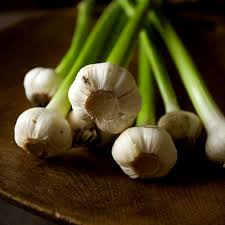Garlic is an amazing plant, loved in the herbal and nutritional medicine world for it’s antimicrobial and antioxidant properties. Its ability to neutralize free radicals makes it a great choice for adjunctive cancer care and as a preventative approach. Previous research as shown that the higher intake of garlic decreases the risk of colon cancer considerably.
A recent study published in the journal Nutrition and Cancer conducted a meta-analysis that reviewed 145 studies on garlic and stomach cancer and picked the 17 with the best methodology. They found results similar to that of garlic consumption and colon cancer, the more garlic intake the more decreased risk of stomach cancer. Compared to individuals that ate no garlic, people that ate the most garlic had only half the risk of the disease.

How much garlic is enough though? Is raw, cooked, or supplemental best? These answers are a bit more elusive. Another meta-analysis done on garlic and cancer prevention in 2000 stated the highest garlic consumption was around 18 grams per week, or about 6 cloves of garlic per week. These researchers found similar results in reduction of stomach and colon cancer risk with more consumption of raw and cooked garlic.

So keep that cancer and those vampires at bay and enjoy your hearty doses of garlic!
By: Travis Whitney, NMD, MSc
Kodali, R.T. and Eslick, G.D. Meta-Analysis: Does Garlic Intake Reduce Risk of Gastric Cancer? Nutrition and Cancer
Fleischauer, AT, Poole, C, and Arab, L. Garlic consumption and cancer prevention: meta-analyses of colorectal and stomach cancers. 2000 Oct; 72(4):1047-52.




